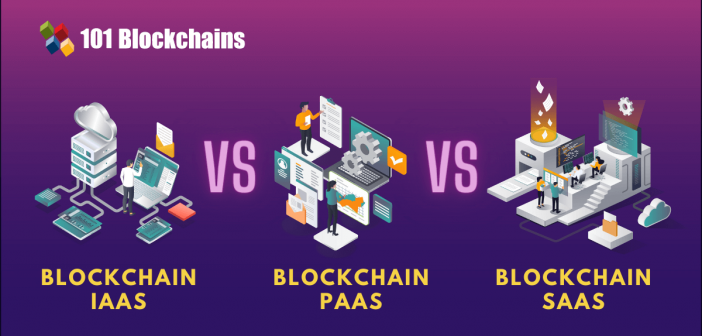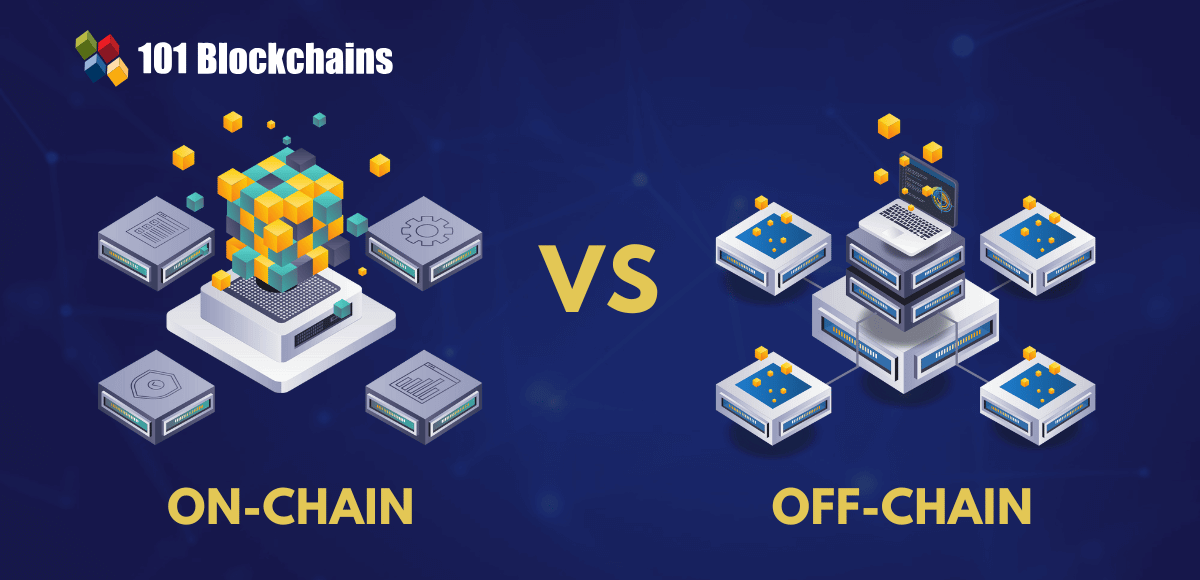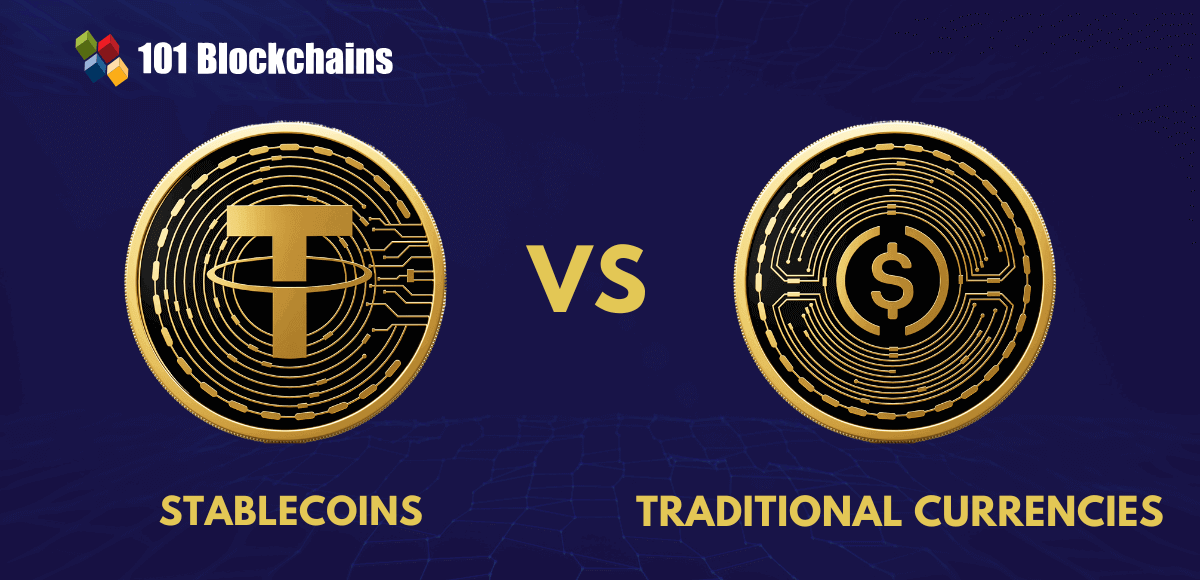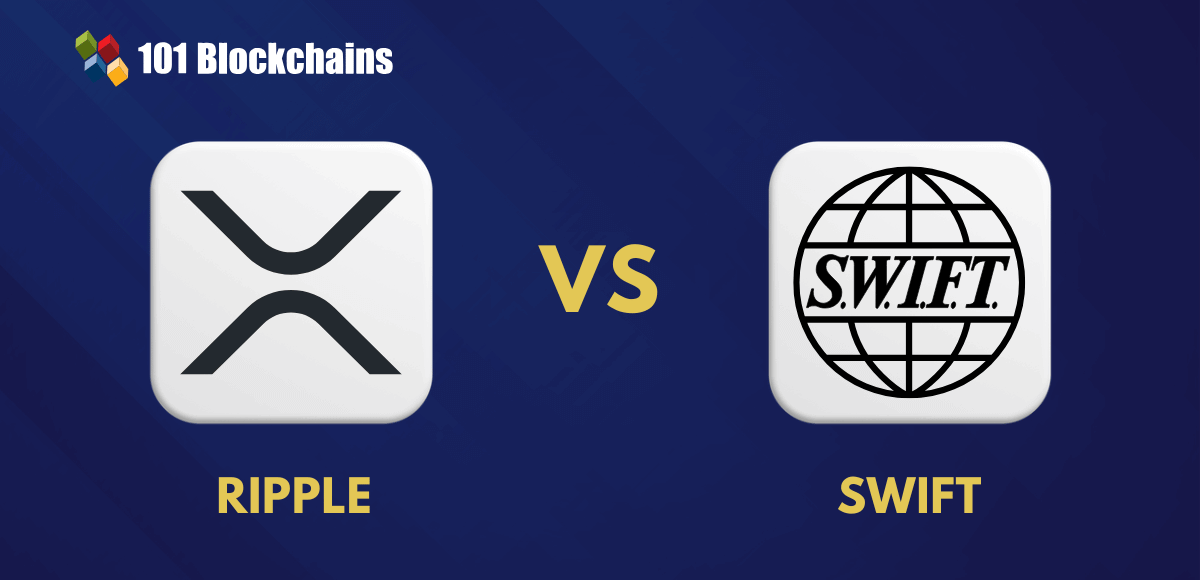Learn how blockchain truly works, master key definitions, and uncover what makes smart contracts so "smart." Dive into the fundamentals, gain valuable insights, and start your blockchain journey today!

- Comparisons
Gwyneth Iredale
- on October 26, 2021
Blockchain IaaS vs PaaS vs SaaS – Key Differences
Blockchain technology is appealing for modern enterprises. However, the technology is new and relatively unknown to many people with the risks in implementation arising from technical change. In addition, the limited talent pool of blockchain professionals with high costs also presents profound issues in blockchain adoption. So, how can the blockchain IaaS vs PaaS vs SaaS debate resolve the concerns regarding blockchain adoption in enterprises?
Interestingly, the IaaS, PaaS, and SaaS models basically refer to the approaches followed for enabling enterprises to use blockchain. You might have heard about IaaS, PaaS, and SaaS in discussions related to cloud computing. Cloud service providers use these models for delivering their services to enterprises, and the same could be applicable for blockchain. The following discussion tries to find answers to ‘What is difference between Blockchain IaaS, PaaS and SaaS?’ with a detailed reflection on each one of them.
Build your identity as a certified blockchain expert with 101 Blockchains’ Blockchain Certifications designed to provide enhanced career prospects.
The Technical Value of Cloud Computing
Cloud computing has evolved as a formidable technological intervention in recent times, which changed the conventional perceptions of computing. It has completely transformed the ways in which companies obtained, operated, and managed their computing resources. Most important of all, cloud computing enables a highly flexible and agile computing environment for coping with the rapidly changing needs of the business and enterprise sector.
The flexibility of cloud computing is one of the foremost traits for which it could promote the adoption of new technologies like blockchain. Cloud computing can definitely play a crucial role in addressing the concerns of complexity in implementation of blockchain solutions. This is where the “as a Service” model comes into the picture.
“as a Service” Model
The “as a Service” annotation basically points out the approach followed for delivering specific services. As of now, the most common and earliest models continue to enjoy formidable popularity. They are Infrastructure as a Service or IaaS, Platform as a Service or PaaS, and Software as a Service or SaaS. Blockchain solutions can also be delivered through these models, and enterprises need to find a suitable alternative for their requirements.
Therefore, the Blockchain IaaS vs PaaS vs SaaS comparison is definitely necessary to find out the best alternative among them. Now, it is important to obtain a clear impression of Blockchain IaaS as well as PaaS and SaaS alongside their advantages and setbacks. The information could help in setting a perfect foundation for comparing them on the basis of different factors.
Blockchain as IaaS
Blockchain delivered in the Infrastructure as a Service or IaaS model features direct similarity with the cloud service delivery model. IaaS basically implies delivery of services with access to a completely provisioned and on-demand computing infrastructure. The infrastructure could be subject to flexible management over the internet.
In the case of blockchain IaaS model, companies could gain the advantage of on-premises computing resources. However, they don’t have to worry about deployment, maintenance, and operations of in-house infrastructures. IaaS also delivers promising functionalities for easier resource management and scalability.
Consumers have to rent the resources like storage, hardware components, and computation resources for using them according to their needs. So, enterprises could easily pay for more resources when they need more performance. At the same time, organizations could also scale down to save costs when operations need limited resources.
The users exert complete control over their infrastructure through a dashboard or an API. With the higher degree of control in blockchain IaaS, users would have to take care of managing certain aspects such as runtime environments, operating systems, data, applications, and middleware.
Enterprises can leverage the functionalities of blockchain IaaS with the services of a cloud provider. Cloud services would reduce the complexity of purchasing, installing, operating, and maintaining the computing resources required for blockchain-based applications.
So, what are the promising advantages of choosing the IaaS model for blockchain solutions?
- Blockchain IaaS ensures limited investment in expensive equipment. Furthermore, on-demand resource usage also improves cost-effectiveness of the IaaS model.
- IaaS in blockchain could offer a better modular approach and flexibility, thereby enabling the easier development of new ideas and solutions.
- The readily available resources offer adequate prospects for improving efficiency through the IaaS model.
- Cloud provider takes care of setup and maintenance of hardware components for blockchain infrastructure, thereby empowering opportunities of productivity for developers.
- The prolific improvements in scalability and flexibility with IaaS also contribute to faster development lifecycles.
- Enterprises could also discover the benefit of scalability according to their performance requirements with the blockchain IaaS model.
While there are many value propositions associated with the IaaS service delivery approach for blockchain, it also features certain limitations. Here is an outline of the setbacks you can find with blockchain as IaaS.
- Lack of migration policies and tools could lead to vendor lock-in.
- Security threats are prominent in data communication between virtual machines and host infrastructure.
- Users need improved know-how of blockchain development alongside taking over responsibility for security and maintenance of infrastructure.
- Legacy systems could not leverage the full potential of blockchain IaaS solutions without radical modifications.
Blockchain as PaaS
Platform as a Service model is also a prominent mention among the service delivery models in cloud computing. The discussion on Blockchain IaaS vs PaaS vs SaaS comparison has been turning the limelight towards PaaS profoundly. It focuses on helping developers with better functionalities for easily creating, running, and managing their own applications.
Blockchain PaaS has been gaining attention from notable players in the domain of technology for various reasons. It can help enterprises expand their business functionalities alongside refining their strategies. All you have to do is rely on the Blockchain PaaS service provider for the management and maintenance of the blockchain infrastructure.
Interestingly, many leading cloud service providers have anticipated the potential of blockchain rightly in introducing their BPaaS services. The most primary advantage of the PaaS model for blockchain is the better and easier adoption of blockchain. PaaS completely takes away the need for integration and installation procedures.
As a matter of fact, many experts have stated that Blockchain PaaS is suitable for developers seeking opportunities for developing blockchain-based applications. The model does not impose any responsibilities for management of operating systems, infrastructure, software updates, or storage. Most important of all, PaaS for blockchain is also appealing for enterprises that want to dive into the domain of blockchain.
The Blockchain PaaS model presents the following advantages.
- Better time efficiency with faster creation, testing, and deployment of new blockchain solutions.
- Improved cost-efficiency with major maintenance tasks and upgrades by service providers.
- With the Blockchain Platform as a Service model, developers could access the functionalities of blockchain without technical know-how.
- Blockchain PaaS also allows better scalability in accordance with the workload.
- Platform as a Service approach helps developers focus on enhancing the core functionalities in their solutions and improving them.
However, Blockchain PaaS also has some disadvantages such as,
- Blockchain Platform as a Service model also creates possibilities for vendor lock-in, just like the IaaS service delivery model.
- The PaaS model with blockchain also implies handing over control of your data to service providers, thereby creating security concerns.
- Legacy systems could not align effectively with the BPaaS model without any extensive customization.
- Users have limited transparency into the events and processes in the backend, i.e., on the side of the cloud service providers.
Not sure how to build your career in enterprise blockchains? Enroll Now in How to Build Your Career in Enterprise Blockchains Course
Blockchain as SaaS
The final entry in the Blockchain IaaS vs PaaS vs SaaS comparison would bring the mention of blockchain Software as a Service model. The SaaS model generally involves the delivery of on-demand software for helping users connect with applications and use them over the internet. Blockchain SaaS model is quite common and is also referred to as the Blockchain as a Service (BaaS) model.
It facilitates development, management, and maintenance of cloud-based infrastructures for enterprises working on design, development, and deployment of blockchain applications. The Blockchain SaaS model has been quite crucial for expanding the scope of applications of blockchain technology. With the help of the SaaS model for blockchain applications, users could now make the most of cloud services for developing, hosting, and operating blockchain-based applications.
The notable advantages of Blockchain SaaS model include,
- Cost-effectiveness is a noticeable benefit with the Blockchain Software as a Service model as vendors take care of required hardware components, updates, middleware, storage, and servers.
- Blockchain Software as a Service model ensures high availability of the application at all times.
- The next important benefit associated with the Blockchain SaaS model refers to the ease of effective maintenance by service providers.
- Most important of all, the Blockchain Software as a Service approach also facilitates faster deployment times.
Just like the IaaS and PaaS models, the Blockchain SaaS model also has its own share of setbacks. They include.
- Higher costs and difficulty in changing vendors could increase possibility of vendor lock-in.
- Blockchain as a Service model does not provide adequate opportunities for customization.
- Users have to compromise in terms of transparency and control by entrusting service providers with control over their data.
- BaaS providers offer limited functionalities for integration with on-premise services and applications.
- Blockchain SaaS also presents doubts regarding security and performance. With the service provider maintaining and managing the service, the performance and security depend completely on the vendor.
The description of the three different models in the Blockchain IaaS vs PaaS vs SaaS comparison showcases very subtle differences between them.
Here is an outline of the differences between the three preferred models for using blockchain services –
| Criteria | Blockchain IaaS | Blockchain PaaS | Blockchain SaaS |
|---|---|---|---|
| Definition | Service model in which the vendor configures and maintains hardware required for blockchain applications. | Service model in which a vendor offers a platform for developing blockchain applications without managing infrastructure. | Service model in which users get a solution for connecting with blockchain and using it over the internet. |
| Control | User exerts complete control over the infrastructure. | Users have to hand over control of some data to the service provider. | Users have limited visibility into backend processes and give up a certain degree of control over data to vendors. |
| Security | Security threats could target specific data communications between virtual machines and host infrastructure. | Limited transparency on actual handling of data and control of service providers over some data create security concerns. | Security and performance and completely subject to the vendor’s jurisdiction. |
| Target Users | Enterprises and businesses are the likely candidates for Blockchain IaaS. | Developers and programmers are the likely audiences for Blockchain PaaS. | Enterprises and businesses looking for a faster time to market with blockchain solutions are ideal for Blockchain SaaS. |
Want to know the fundamentals of Blockchain as a Service (BaaS)? Enroll Now: Getting Started with AWS Blockchain as a Service (BaaS)
Final Verdict
The differences between Blockchain IaaS, PaaS, and SaaS models provide a clear perspective on the opportunities for using blockchain. Many enterprises have apprehensions about blockchain adoption because of the notable complexities associated with the technology. In the long run, enterprises would adopt blockchain technology as a staple addition in all their processes and operations. So, there should not be any reason to delay the use of blockchain now. The clear impression of pointers in Blockchain IaaS vs PaaS vs SaaS comparison could help you find the right way to move ahead with blockchain. Learn more about the different service delivery models for blockchain solutions in detail.
*Disclaimer: The article should not be taken as, and is not intended to provide any investment advice. Claims made in this article do not constitute investment advice and should not be taken as such. 101 Blockchains shall not be responsible for any loss sustained by any person who relies on this article. Do your own research!






